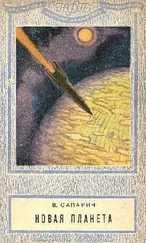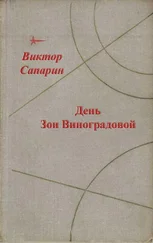Виктор Сапарин - The Trial of Tantalus
Здесь есть возможность читать онлайн «Виктор Сапарин - The Trial of Tantalus» весь текст электронной книги совершенно бесплатно (целиком полную версию без сокращений). В некоторых случаях можно слушать аудио, скачать через торрент в формате fb2 и присутствует краткое содержание. Жанр: Фантастика и фэнтези, на английском языке. Описание произведения, (предисловие) а так же отзывы посетителей доступны на портале библиотеки ЛибКат.
- Название:The Trial of Tantalus
- Автор:
- Жанр:
- Год:неизвестен
- ISBN:нет данных
- Рейтинг книги:5 / 5. Голосов: 1
-
Избранное:Добавить в избранное
- Отзывы:
-
Ваша оценка:
- 100
- 1
- 2
- 3
- 4
- 5
The Trial of Tantalus: краткое содержание, описание и аннотация
Предлагаем к чтению аннотацию, описание, краткое содержание или предисловие (зависит от того, что написал сам автор книги «The Trial of Tantalus»). Если вы не нашли необходимую информацию о книге — напишите в комментариях, мы постараемся отыскать её.
The Trial of Tantalus — читать онлайн бесплатно полную книгу (весь текст) целиком
Ниже представлен текст книги, разбитый по страницам. Система сохранения места последней прочитанной страницы, позволяет с удобством читать онлайн бесплатно книгу «The Trial of Tantalus», без необходимости каждый раз заново искать на чём Вы остановились. Поставьте закладку, и сможете в любой момент перейти на страницу, на которой закончили чтение.
Интервал:
Закладка:
But the slip from the third automatic researcher contained information that caused Barch to gasp. It showed enlarged photographs of the microbes found in the reeds, and among them-Barch wanted to pinch himself to make sure he was awake-were the familiar outlines of the Tantalus! He could not believe his eyes.
He seized the magnifying glass and, trying to keep calm, proceeded to examine the photographs carefully. No, he was not mistaken: that shape like the paragraph sign was all too familiar. There could be no doubt about it, this was the Tantalus!
The buzzers of the fourth, fifth and sixth automatic researchers sounded, but Barch laid their slips aside without even looking at them. He rang up Clara.
When at last she answered, Barch's table was positively littered with slips. He glanced at them quickly and plied Clara with additional questions.
An inquiry about the spots elicited an unexpected answer: Clara named a virus found in the basin of the Amazon River half a century ago.
The Amazonian virus, she said, had been a harmless creature altogether unremarkable and in fact so colourless that the Unabridged Microbe Encyclopedia allotted no more than five lines to it. It evidently had no influence on the plants it lived on. Discovered by chance, it had existed in obscurity until Barch had dragged it into the limelight.
Barch called Carey. Jamaica replied at once.
"Try feeding the elephants with Tantalus-infected reeds. African elephants preferably," he said.
"All right. What's up?"
Barch told him.
Carey's grin was broader than ever.
"I say, you've got something there."
He beamed. It was not for nothing people said that the day the Biological Defence ran out of assignments Carey would pine away and die of some unknown disease.
He asked Barch to let him have all the data he had collected from the automatic researchers. Barch pressed the "transmit data" button and climbed out of his machine.
Charlie and App were also transmitting their initial finds to the Centre.
"It's a virus disease, of course," said App.
"I found a high manganese content in the blood," said Charlie. "What have you got?"
"Looks like the Tantalus," Barch said. He shrugged his shoulders. "But not quite. There's a good deal of manganese in the reeds too."
"Must be in the soil."
"Now we only have to check the insectarium," said App. "That's another problem of our age! By preserving corners of nature untouched, man is preserving seats of infection. The question is, what is the best thing to do- to preserve or destroy? In other words, which is the most advantageous for man? Perhaps these preserves are the source of infection?"
... The net covering the tropical forest was green with a mesh so fine that it was almost invisible even at close quarters. Bandy found the entrance and opening the flap, stood aside to allow the others to enter. As they had passed through three rows of netting, Bandy carefully closed each opening behind them. At his insistence they all put on protective nets before embarking on their tour of the insectarium.
This was the world in its primeval state. Winged creatures, a single bite from whom was deadly poisonous for man, bred and multiplied unhindered in this moist, suffocating atmosphere. It was the sort of jungle that had filled even the boldest travellers of former times with horror and loathing.
Barch was a soldier of the Biological Defence. And like a soldier he strode confidently forward, observing a reasonable measure of precaution. The winged bullets whistled past his ears, bumped against his net, whirled above his head. But Barch was in his element. The swift and frequent change of scene, the danger involved, the urgency were what made the work in Biological Defence so thrilling. Barch caught himself smiling contentedly under his netting for all the world like Carey.
No, he could never spend his life behind thick, albeit transparent walls, like Svensen, though, to tell the truth, the work in the germ gaol's laboratories was no less dangerous and fascinating than his own. But it lacked the thrill of emergency calls that took one to the remotest corners of the globe. In a word, it lacked adventure.
Bandy bent down and pointed to large tracks in the ground.
"Elephants," he said.
App studied the prints closely for a few minutes.
"These were healthy ones," he said.
"Will we be able to take a blood test?" Charlie wanted to know.
Bandy shook his head. "Can't do it with healthy animals," he said.
"Well, we don't really need it, if they're healthy," said App. "It's the sick ones that interest us."
"Now let's see what the reeds have to say."
Cutting a number of reeds and stowing them away in hermetically sealed sacks, the men retraced their steps through the jungle, exercising the same caution as before. Bandy led them through the triple overall net at the exit and turned on a number of switches hidden in the bushes.
"The net is electrified," he explained. "That's to prevent the bigger animals from breaking through."
... The automatic researchers were given a fresh portion of work to do.
"Well, what's the result?" App inquired, looking into Barch's laboratory.
"No spots."
"What about the chemical analyses?"
At that moment the first machine buzzed.
"Manganese?" asked Charlie, coming up.
"No sign of it," replied Barch, examining the slip.
"Hm," Charlie looked puzzled. "Perhaps the manganese is the clue to the mystery?"
Barch summoned Carey again. The latter told him that the two African elephants that had been fed Jamaica reeds infected by the Tantalus showed no signs of sickness.
"Try it on some other elephants," suggested Charlie. "Feed them the same reeds treated with manganese."
"Look here," protested Carey, good-naturedly, "how many elephants do you think I've got? Okay, I'll do it. And if we get the serum we'll let you have it at once. You'd better try and save the ones you have."
"We'll have to move them to a healthier spot," said App after Carey had gone.
"I suppose any place will do so long as there's no manganese in the soil," said Charlie.
Barch climbed into his plane and went off to look for a place.
The others attended to the elephants. Many of the animals were too weak to stand. Bandy called out the freight helicopters. In about an hour the huge cargo craft began to land on the field one after another. The elephants were loaded in by crane. Some were so weak that they could hardly be made to lift themselves far enough for the hoist straps to be passed around them.
"These are the ones Ngarroba was experimenting with," said Bandy. "It will be too bad if they die."
Charlie, App and Barch spent the whole night transporting the elephants to the new grounds. It was daybreak when Bandy dismissed the helicopters.
"Well," said App, surveying the animals lying listlessly on the grass. "I think we've earned a rest. We'll sleep in relays-one sleeps while two carry on. Right?"
They drew lots. Barch got the "lucky" slip and went off to his bunk. He closed the door of his cabin tight, set the air conditioning apparatus to his accustomed temperature and humidity, and pressed a button. A mattress moved out from the wall, one of those new-type super-comfort mattresses designed by the Sleep Institute. Turning the knob of the electrical sleep apparatus to "natural awakening," Barch undressed. What a pleasure it was to sleep without the encumbrance of night-suits or bed clothing of any kind! For centuries man had bundled himself up in animal skins or blankets until at last he had freed himself from those primitive sources of warmth. Barch mused as he settled down on his bed. But the next moment all thoughts were banished as he sank gently into a dreamless sleep.
IV
Интервал:
Закладка:
Похожие книги на «The Trial of Tantalus»
Представляем Вашему вниманию похожие книги на «The Trial of Tantalus» списком для выбора. Мы отобрали схожую по названию и смыслу литературу в надежде предоставить читателям больше вариантов отыскать новые, интересные, ещё непрочитанные произведения.
Обсуждение, отзывы о книге «The Trial of Tantalus» и просто собственные мнения читателей. Оставьте ваши комментарии, напишите, что Вы думаете о произведении, его смысле или главных героях. Укажите что конкретно понравилось, а что нет, и почему Вы так считаете.



